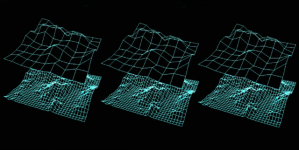This one's been bubbling lately with the bumping of the Borges thread and that Land interview where he discusses 'hyperstition':
Now boiling over after a YouTube recommendation which may have been composed in '84 or '22 by an artist who doesn't exist:



Did anyone ever get to the bottom of who "Satoshi Nakamoto" is? How about "Q"? The question of authorship's a big part of the mystique with this stuff. The same goes for the (semi) anonymity of groups like Tiqqun / The Invisible Committee and Luther Blissett / Wu Ming.
As mentioned above, Borges and Lovecraft are two of the daddies as their work's layered with fictional (?) scholars and sources.
"I am not 100 percent confident of what Reza is saying in that text. I wouldn’t want this to be treated as a commentary on his thought. But hyperstition did arise in a certain milieu that definitely rhetorically emphasized a certain type of collectivity and even more than that. What’s being referenced is not primarily universality at all, but something much closer to an anonymity or the problematization of attribution. Any hyperstitional unit—and what’s now called a meme is very close to this—that can be confidently attributed to a particular act of individual creation is originally disabled. H.P. Lovecraft seems to have understood that the whole production of the Lovecraftian mythos was very much an attempt on his part to subtract his own creative role. It’s only when that is subtracted that these things are released. Cthulhu becomes a kind of hyperstitional term to the point that it’s not simply something that has been invented by Lovecraft. The fact that he weirdly, often a bit hamfistedly, weaved his social network of friends, namely their names, into his stories, is part of that recognition. What’s more at stake in this notion of collectivity is something like a breakage of attribution, the original subversion of it. I don’t think it’s just a tactic. It’s precisely the things where you have no idea where they came from, it’s exactly those elements about whose genesis you have least confidence, that are the ones that have the greatest hyperstitional momentum."
Now boiling over after a YouTube recommendation which may have been composed in '84 or '22 by an artist who doesn't exist:



Did anyone ever get to the bottom of who "Satoshi Nakamoto" is? How about "Q"? The question of authorship's a big part of the mystique with this stuff. The same goes for the (semi) anonymity of groups like Tiqqun / The Invisible Committee and Luther Blissett / Wu Ming.
As mentioned above, Borges and Lovecraft are two of the daddies as their work's layered with fictional (?) scholars and sources.


